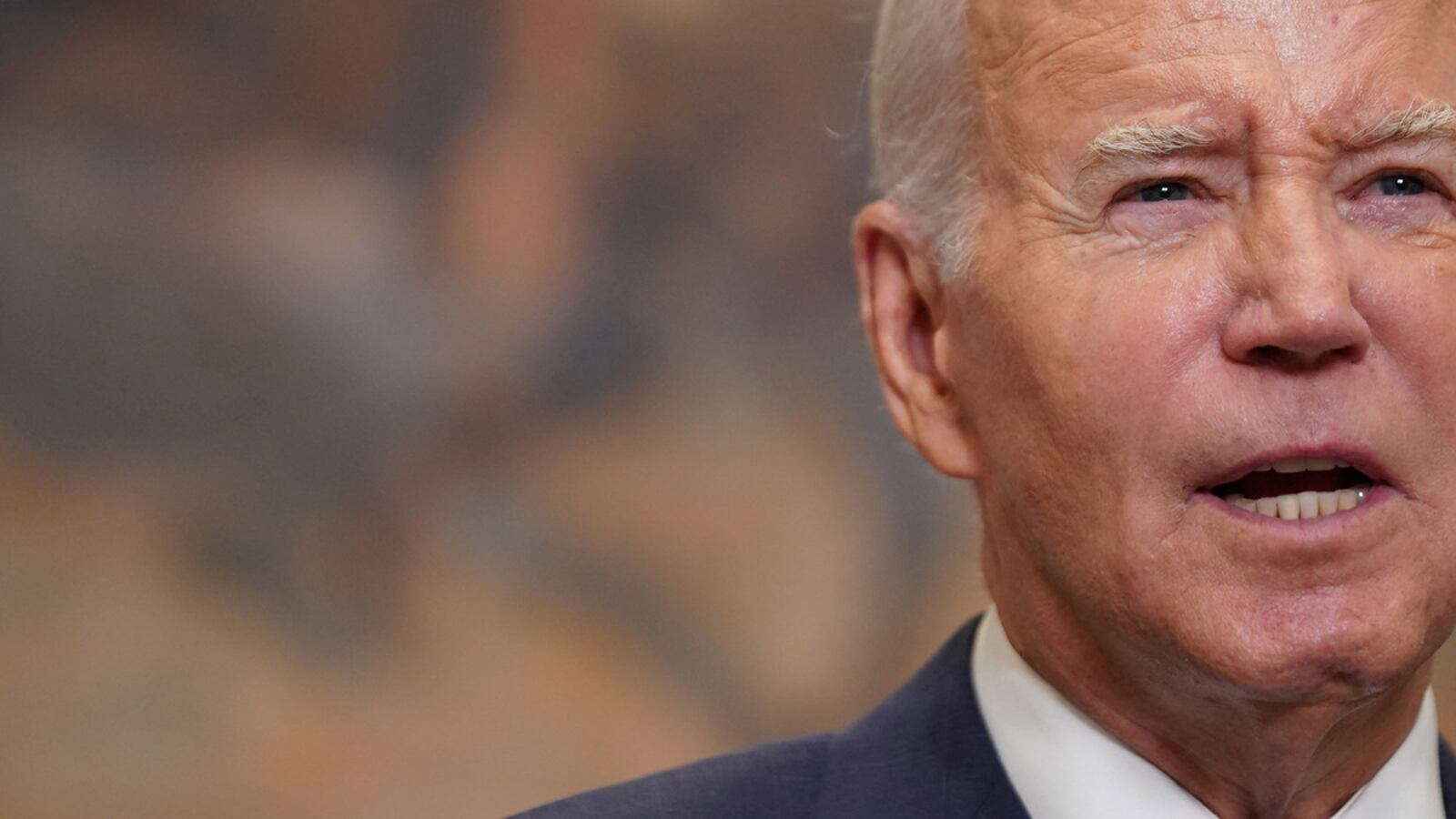President Joe Biden announced the rollout of a New Deal-style program to create 20,000 green jobs for young adults on Wednesday. The American Climate Corps aims to create jobs in green energy, climate resilience, and restoring land and ecosystems while creating a pipeline to long-term careers.
While the program’s goal is to fight the disastrous impact of climate change while juicing the economy, it’s also attempting to address economic inequity by providing jobs and career opportunities to historically underserved communities and populations. The White House said in a statement that these jobs include “restoring coastal wetlands to protect communities from storm surges and flooding, deploying clean energy, managing forests to improve health and prevent catastrophic wildfires, implementing energy efficient solutions to cut energy bills for hardworking families, and more.”
"We're opening up pathways to good-paying careers, lifetimes of being involved in the work of making our communities more fair, more sustainable, more resilient," Ali Zaidi, the White House’s climate policy adviser, told reporters on Wednesday.
The Climate Corps fulfills a campaign promise by Biden, who issued an executive order in his first week in office for the administration to create a green jobs program. The project would aim to “conserve and restore public lands and waters, bolster community resilience, increase reforestation, increase carbon sequestration in the agricultural sector, protect biodiversity, improve access to recreation, and address the changing climate,” Biden wrote at the time.
The announcement drew praise from climate activists including the Sunrise Movement, which had previously criticized Biden for his lack of action in fighting climate change. However, some experts believe that, while positive, more needs to be done in order to appropriately address what many characterize as an existential risk in climate change.
“My view on the climate initiatives is ‘yes and more,’” James Salzman, a professor of environmental law at the University of California, Berkeley, told The Daily Beast in an email. “There are no obvious downsides or perverse incentives created by the program, so anything additional we can do to address the challenge is better than not.”
“The American Climate Corps' promise to train and employ 20,000 young people is less than one-tenth of the size of the New Deal's Civilian Conservation Corps at its peak of around 300,000 workers,” Jon Christensen, an adjunct professor at the UCLA Institute of Environment and Sustainability and environmental historian, told The Daily Beast. However, he added that “we're living in a very different time. We're not in a depression. Unemployment is near historic lows.”
The American Climate Corps 20,000 jobs is still a fairly modest goal considering the country’s population of more than 330 million people. It also calls into question where exactly these jobs will be focused—and who exactly gets to fill them.
While Christensen said that the American Climate Corps was “historically important and significant,” he adds that it is contingent on the Biden administration being able to stay true to its promise of handing the jobs out in an equitable manner while targeting the communities that need it the most.
“It really needs to keep a focus on those with the highest needs,” Christensen said. “There are areas with pockets of unemployment that are higher in the United States—especially disadvantaged, low-income communities of color... This could really have a positive impact on the lives of young people from those communities as they begin their careers.”
Another reason for caution is the fact that the language surrounding the Climate Corps is currently vague. There’s no defined timeline on when things will begin to roll out, nor is there a concrete plan for what initiatives and jobs there will be or how they’ll be deployed.
Put it another way: It’s one thing to say you want to create jobs, tackle climate change, and protect vulnerable communities, it’s another thing entirely to actually do it.
“We need to think about specific improvements,” Mark Jacobson, an associate professor of economics at the University of California San Diego and climate policy expert, told The Daily Beast.
He adds that the challenges involved in the Climate Corps go beyond simply giving people jobs. It’s creating a defined career path for tens of thousands of Americans while attempting to address climate resiliency issues. As such, it requires a more defined and clear-cut path to success beyond the vague sentiments currently outlined by the Biden administration.
“What we have is something that's potentially a little bit harder and more involved,” he said. “And that's why laying that out will be important. The goal has to be about training and improving the future prospects of the folks who sign up now. How exactly is that going to work?”
For now, the Climate Corps is a good first step in addressing current and future climate challenges, while creating jobs for disadvantaged communities. Christensen said he hopes that it gets expanded in the future beyond the current 20,000 job goal. That way even more underrepresented folks have the opportunity to access its benefits.
“It is a historically significant investment in environmental justice,” he said. “But it has to be also accompanied by people from low-income households that have borne the burden of pollution and disinvestment.”








